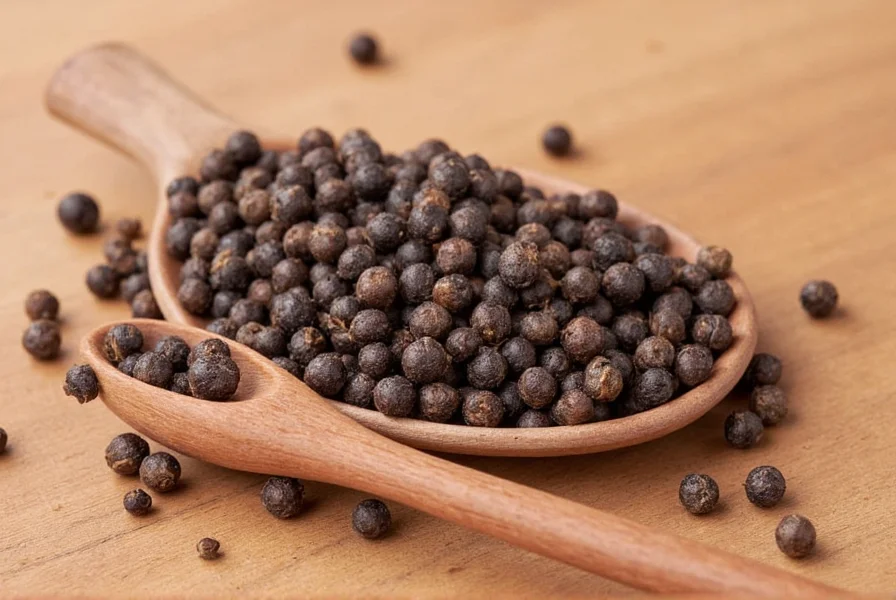Why Black Pepper Is the King of Spices
Black pepper is the most versatile and universally used spice in the world. Whether you're seasoning a steak, enhancing a salad dressing, or adding depth to chocolate desserts, freshly ground black pepper transforms ordinary dishes into extraordinary meals. This guide covers everything you need to know to master black pepper usage, storage, and pairing for maximum flavor impact.
Top 10 Black Pepper Tips for Culinary Excellence
- Always Grind Fresh: Use a pepper mill for maximum flavor. Pre-ground pepper loses 90% of its volatile compounds within 15 minutes of grinding.
- Add at the End of Cooking: Heat destroys black pepper's aromatic compounds. Sprinkle it just before serving for the best flavor.
- Pair with Turmeric: Piperine in black pepper boosts curcumin absorption in turmeric by up to 2000%.
- Enhance Desserts: A pinch of black pepper elevates chocolate mousse, berry desserts, and vanilla custards.
- Season Cheeses: Freshly cracked pepper on brie or goat cheese creates a perfect spicy-creamy contrast.
- Make Custom Seasoned Salt: Mix coarse sea salt with crushed black pepper for a versatile kitchen staple.
- Boost Marinades: Combine with garlic, olive oil, and herbs for meat rubs that penetrate deeply.
- Perfect for Eggs: Black pepper makes scrambled eggs, omelets, and avocado toast taste restaurant-quality.
- Spice Up Popcorn: Toss freshly popped popcorn with melted butter and coarse black pepper for a savory snack.
- Store Properly: Keep whole peppercorns in an airtight container away from light and moisture to maintain potency for 2-3 years.
| Spice | Flavor Profile | Main Compound |
|---|---|---|
| Black Pepper | Earthy, spicy, slightly floral | Piperine |
| Chili Peppers | Sharp, fiery heat | Capsaicin |
| White Pepper | Fermented, musty, earthier | Piperine (same compound) |
How to Store Black Pepper for Maximum Freshness
- Store whole peppercorns in an airtight glass container away from direct sunlight
- Ground pepper should be used within 6 months for optimal flavor
- Avoid storing near strong-smelling spices like cumin or garlic powder

Frequently Asked Questions About Black Pepper
What's the difference between black pepper and white pepper?
Black pepper comes from unripe green berries that are cooked and dried, creating the characteristic dark outer layer. White pepper is made from ripe peppercorns with the outer layer removed, resulting in a milder, earthier flavor. Black pepper has more complex floral notes while white pepper is often described as mustier and more pungent.
Why should I use fresh ground pepper instead of pre-ground?
Freshly ground pepper retains significantly more flavor and aroma compounds than pre-ground pepper. The essential oils that give black pepper its distinctive flavor begin to evaporate immediately after grinding. Studies show that pre-ground pepper loses up to 90% of its volatile compounds within 15 minutes of grinding, which is why culinary professionals always recommend grinding pepper fresh at the time of use.
How long does black pepper last before losing its flavor?
Whole peppercorns can maintain their full flavor potential for 2-3 years when stored properly in an airtight container away from light and moisture. Once ground, pepper begins losing potency rapidly - pre-ground pepper typically retains only 50% of its flavor after 6 months. For best results, always grind pepper fresh and use within 15-20 minutes for maximum flavor impact.










 浙公网安备
33010002000092号
浙公网安备
33010002000092号 浙B2-20120091-4
浙B2-20120091-4